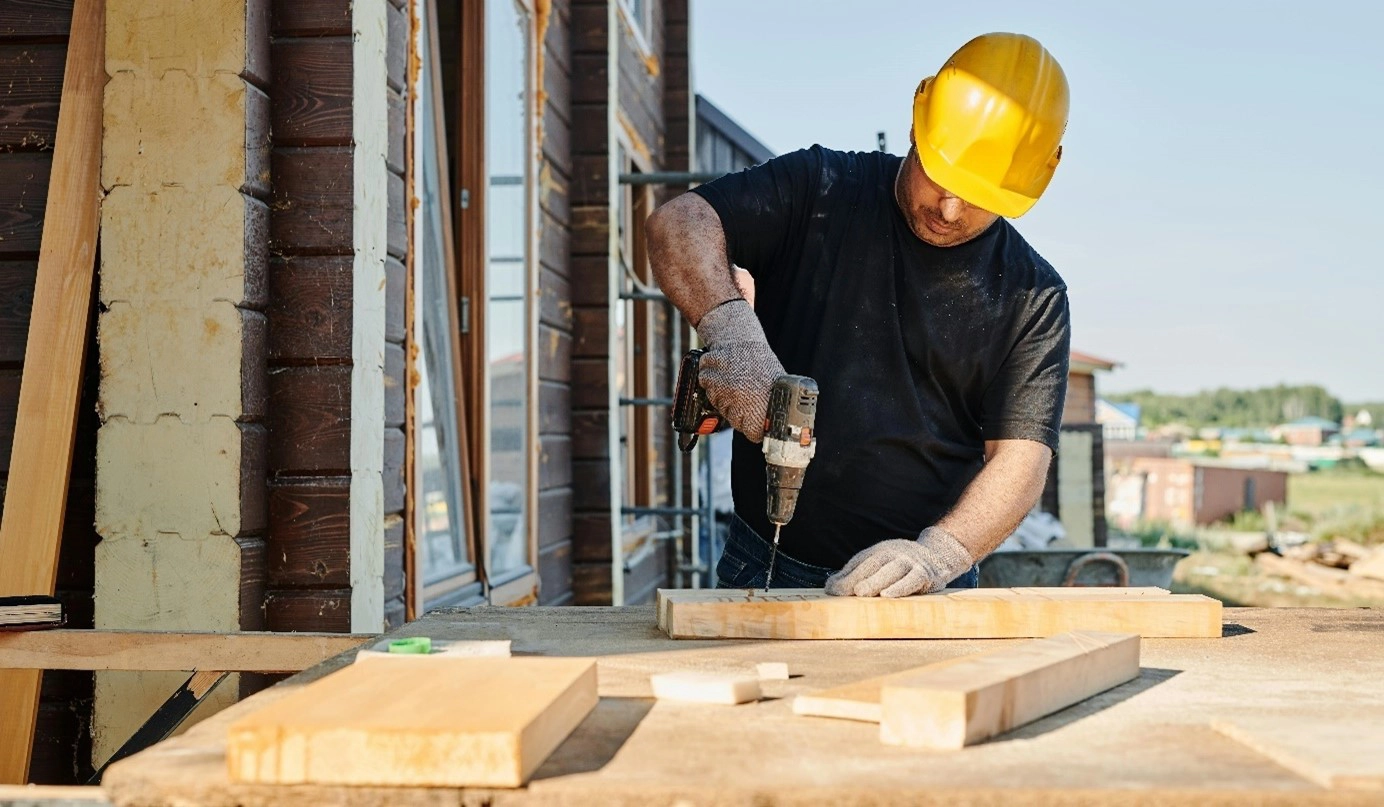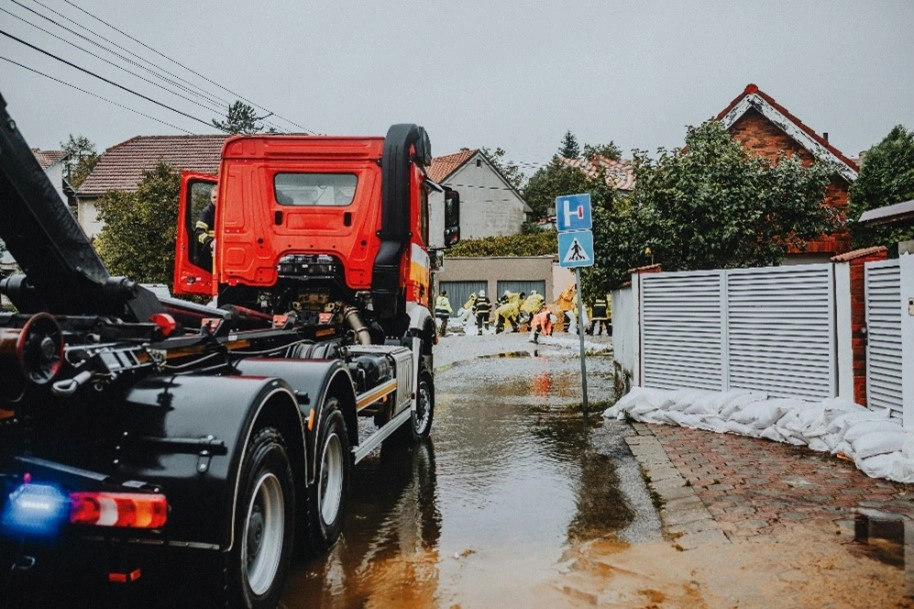
If you’re making plans to buy a home, heads up. Especially if the location has been exposed to storms or other physical disruptions. When the Clever Real Estate company surveyed homeowners this year, a third of the poll responders said they might hire a contractor with a flawed reputation to save funds.
In the aftermath of a tragedy, manipulative contractors can wreak further havoc. As deed holders submit insurance claims and hire renovators after hurricanes and other critical events, they should be wary of questionable business pitches. Storms, mudslides, floods, and fires attract smooth operators who take advantage of other peoples’ setbacks.
Fed Groups Warn Public of Hurricane-Chasing Contractors

After a series of hurricanes struck the southeast, the Consumer Financial Protection Bureau joined the U.S. Department of Justice and the Federal Trade Commission to alert people to potential fraud, schemes, and price gouging.
When an emergency disrupts supplies and services, businesses may be tempted to “inflate prices charged to customers who are under extreme stress,” the release warned.
Watch out for these red flags, say the agencies:
- Charities claiming to help victims — at least some of them. Some are not the established charities that their names make them seem to be. Some offer help, then ask for money.
- People claiming to be disaster relief officials who want sensitive information or money upfront.
- Promises that disaster relief is available, but the resident must pay a fee. Applicants for legitimate disaster relief do not need to pay.
- Scammers who urge people to invest money in disaster-recovery businesses and funds.
Another problem is the prevalence of door-to-door sales calls, by promoters looking for people to sign up for flood-proofing, roofing, and other services.
Some businesses claim to be sent or endorsed by the Federal Emergency Management Agency. They are not. FEMA does not endorse or certify contractors.
Current Deed Holders: Don’t Fall for These Scams
The pressure’s on. This is when it’s most important to stay alert. Don’t fall for:
- Service technicians who want you to pay by wire transfer, a gift card, cash, or cryptocurrency.
- Businesses asking you to sign over your insurance check.
- A self-identified government or corporate official who doesn’t provide credentials.
- Companies that want major deposits (20% and higher) up front.
- Representatives who call you and ask for personal identifying information (Social Security numbers, date of birth, financial account numbers). If you get a call from an agency or business, look up the number separately. initiate the call yourself to verify that you’re not speaking with an imposter.
An important precaution you can take is to ask the business for a copy of its Certificate of Insurance. Do this before hiring. You need to know the contractor is on the level and can cover any further damage that could occur in the restoration process.
And that leads us to…
Six Signs of a Good Contractor
How can you separate the good from the rotten eggs? Look for:
- Recommendations of prior customers. Local people you know might have recommendations. If your home is part of an association, the office may have a list of licensed, reputable contractors. Online reviews also offer insights from people who’ve interacted with the contractors in the past. Check dates when looking at online reviews. Management might have changed things over the months and years.
- Listings on state databases. The state’s insurance regulator may publish the names of licensed contractors on its website.
- A helpful, informative website. Check out contractor websites and compare the way they market themselves with others in the local industry. Responses to your message or phone call can tell you how they approach potential clients and whether they are overwhelmed with other renovation tasks.
- Detailed, written (or emailed) estimates. A reputable contractor offers the potential client a detailed list of repairs and materials needed, a quote or multiple quotes, depending on the materials and labor options; and a timeline for payments. Once you select a contractor, the contract for the work should be completely understandable. Ask about anything you don’t understand before you sign.
- Excellent communication habits. A reputable contractor explains the potential for pricier repairs to crop up during the course of the work. Contractors have forms for any changes; be sure you’ll be asked to sign them off. A good contractor talks you through any changes before they are made. There may be times when a contractor has to make a change to comply with local codes; the professional should let you know. Part of being dependable is communicating well to customers.
- Credit cards accepted. Paying by credit card can let you recover funds when a company does unsatisfactory work.
Customers should keep receipts (and photocopies of receipts, in case of loss or damage to paperwork).
Checklist: What to Do After Disaster Hits
Deed holders, prepare for the unexpected. Know how you’ll respond.
In an emergency event, once you have dealt with the physical safety of you and your loved ones, here are the moves to make:
- Contact your insurance company. Some insurance companies require the adjuster’s approval before work can be done. Get tips and pointers. Some states have laws geared to protect people in the wake of disasters. For example, for storm damage repairs in North Carolina, work worth more than $40K has to be done by a state-licensed general contractor.
- Apply for disaster relief. Has a federal disaster been declared in your area? You may be eligible for assistance. A home inspection will confirm the kind and extent of damage. This will help you get all the assistance available to you.
- Get a professional inspection. A post-disaster inspection will establish documentation for your home insurance company and help you plan out coverage for the repairs. An experienced inspector can test your home for potential health and safety issues. If you’re selling the home later, documentation of the inspection and subsequent work can show potential buyers that a restored home complies with local building codes.
- Compare quotes for renovations. A fair and reasonable contractor always gives written estimates for work.
- Verify the credentials of contracting businesses. You can refer to the state licensing website for general contractors. Contractors should show their licensed, bonded, and insured status on their documents. Avoid people who don’t produce street addresses for their companies.
- Prevent ongoing damage. Attend promptly to must-fix items found in the inspection. Deal with structural damage that could present a hazard. Some damage may not be immediately obvious. Invisible damage can create health hazards for households.
- Report fraud when you see it. If you’ve experienced inappropriate business tactics, report the issue to your state Attorney General’s office. You may also notify local law enforcement.
It’s important to have reputable and competent people working on a home in need of repair. But prioritizing under pressure is hard. So, review these steps before you actually need them. We hope you never will.
Supporting References
Ana Teresa Solá for CNBC LLC via CNBC.com, part of NBCUniversal: 33% of Homeowners Would Hire a “Questionable” Contractor to Save Money, Report Finds (Oct. 9, 2024; discussing an Aug. 2024 Clever Real Estate housing data report by Jamie Dunaway-Seale).
Jade Jackson for IndyStar, assisting The Citizen-Times, a USA Today network in Asheville: Here’s How to Avoid Contractor Fraud and Charity Home Repair Scams After Any Weather Disaster (Oct. 9, 2024).
Andrew Fox for the BrickKicker blog, via BrickKicker.com: The Importance of a Thorough Inspection Following a Natural Disaster (Nov. 12, 2021).
And as linked.
More on topics: Disasters and your home title, Florida flood disclosure rule
Photo credits: Mikael Blomkvist and Helena Jankovičová Kováčová, via Pexels/Canva.
